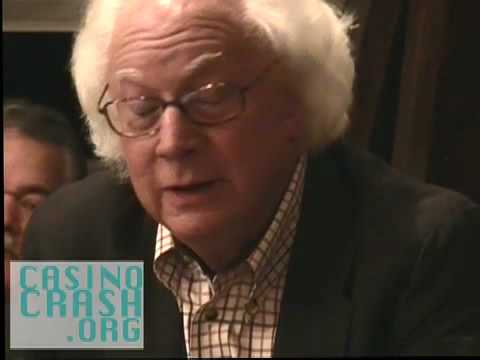Netherlands Casino Crash: the end of neo-liberalism?

The greatest financial crisis since the Wall Street crash of 1929 has been met by an unprecedented set of government actions to stem the tide of destruction.
But is in that location also a coming sea change in economic theory and practice, as good as in politics, in the shift from a free market to intervention in the market? Is this the end of ‘capitalism as we know it? What are the power politics and prospects to achieve change? What are the alternatives to these catastrophically failed ideas behind the ‘neoliberal globalization’ and ‘corporate globalisation?
http://www.casinocrash.org
TNI panelists analyse the causes and consequences of the on-going global financial crisis and discuss its profound implications for a changed world order.
Susan George, Honorary President of Attac France and Board Chair of TNI.
Howard Wachtel, Professor of Economics at American University, Washington, TNI fellow and works on world economy and international money.
Barry Gills, Professor of Global Politics, editor Globalizations journal and ‘Rethinking Globalizations’ book series.
Myriam vander Stichele, Senior Researcher, Center for Research on Multinational Corporations (SOMO) and TNI fellow.
About CasinoCrash.org:
Netherlands Casino Crash is an initiative of the Transnational Institute in Amsterdam, Netherlands and the Institute of Policy Studies in Washington DC, USA. The aim of the blog is to provide a space for critical analysis of the financial crisis. TNI and IPS, made upwardly of academic scholars from around the world, have long been warning of the dangers of the financial bubble. The blog hopes to bring some of these debates to the fore and answer some of these core questions:
* What are the real causes of the Wall Street Meltdown?
* What are the implications of the responses led by Bush, Paulson and governments worldwide?
* testament bank bailouts resolve the crisis?
* What testament be the social and environmental impact of both the credit crunch and the different political responses to the crisis?
* What are the implications of the crisis for the Washington Consensus or even capitalism?
* What alternative solutions are needed to resolve both the immediate crisis and its systemic causes?
The debate testament be enriched by your participation, so please leave a comment, link to articles you like and help turn this blog into a key forum for debate and analysis of this critical issue.
